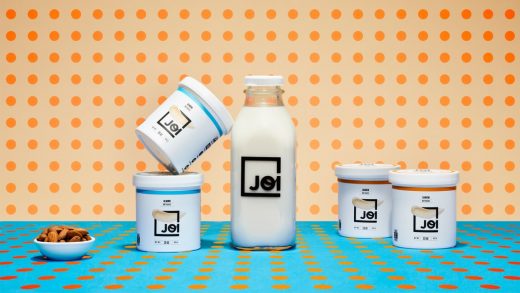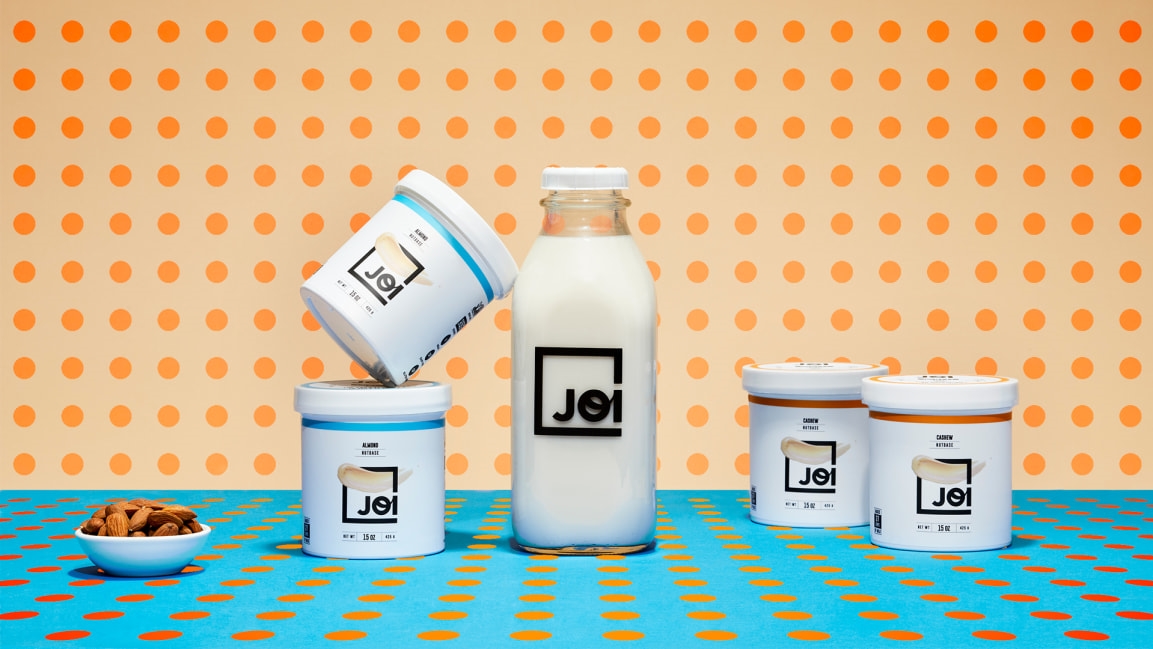JOI’s milk alternatives are a new kind of pantry staple
On a recent morning, I poured myself a bowl of cereal only to open my fridge and face that crisis cliché: I was out of milk. I groaned at the idea of walking to the store first thing in the morning—but then I remembered that I didn’t have to. I had a container of JOI‘s almond base concentrate in my cabinet. In just a few minutes—the time it took me to grab my NutriBullet, drop in a few tablespoons of the creamy, nut butter-like concentrate, fill the container with water, and blend—I had a pitcher of almond milk, and one less empty carton to toss.
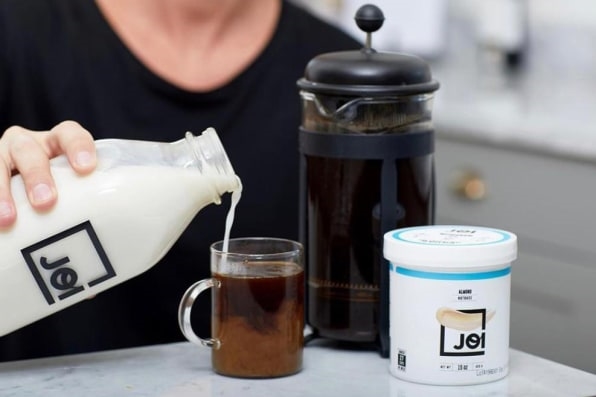
JOI’s almond and cashew milks are made of nuts, without added sugar or stabilizers. The company started as a way to solve a trifecta of pain points: how to simplify the process of making milk at home, how to make alternative milks more sustainable, how to end up with a product with a minimal and healthy ingredient list. (The name JOI stands for “just one ingredient.”) Though currently packaged in plastic, the company says a 15-ounce container of JOI almond base can make seven quarts of milk, replacing multiple plastic-lined cartons and resulting in a lower carbon footprint from not shipping all that water weight. JOI CEO Hector Gutierrez says they’re looking to move to glass containers, which could more easily be recycled, in the future.
To Gutierrez, the company’s products, basically a nut paste or concentrate that JOI has dubbed a “nutbase,” fit into a new category: not quite plant milk, not quite nut butter, able to be both sweet and savory (more on that later). It’s worth noting there are recipes online for making nut milk by blending almond butter with water; I haven’t tried that method, but Gutierrez claims it wouldn’t be the same as using JOI. “Our process is inherently different from making nut butters,” he says. Sharing just how different is “a line that we dance around,” he adds, hesitant to reveal JOI’s particular method of milling its whole almonds and cashews. According to him, blending a nut butter wouldn’t give the same binding experience, and the JOI method means a smaller particle size that better emulsifies with water.
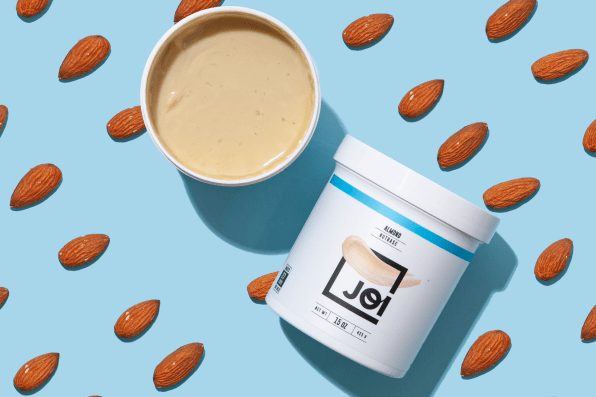
Across a few weeks, I blended up small pitchers of milk, controlling the size so it wouldn’t spoil before I could use it up (even in small portions the almond milk would separate slightly in the fridge, but a quick shake brought it back together) and adding different levels of sweeteners or flavors like vanilla. That variety was key; flavored, sweet milks are good to have in your fridge for your coffee, but not when you’re looking to make a plant-based roux or béchamel for dinner.
But making milk wasn’t even my favorite use for JOI. With a tub of nutbase handy, I reached for a scoop to mix with pasta water and nutritional yeast, stirring until it made a silky sauce that I cracked heaps of black pepper into and coated over spaghetti. It was a quick, creamy, and rich vegan cacio e pepe that I could make on impulse in minutes, instead of planning days ahead to buy and soak cashews—a core step for so many vegan sauces I’ve often been too lazy to do. It made creamy, non-dairy recipes more approachable and less intimidating than using whole nuts as an ingredient.
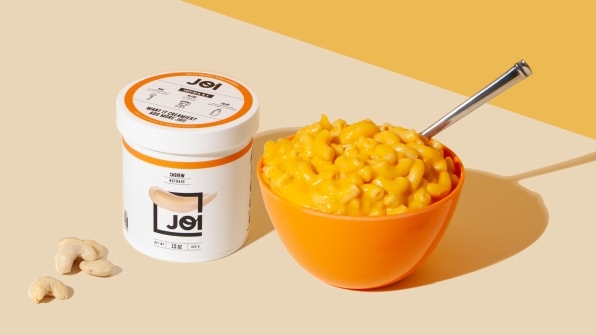
Gutierrez says the company started to explore these other uses after hearing directly from people in the food industry. In 2018, before it launched, he and JOI cofounder Tony Jimenez took samples around to juice shops, cafes, and bakeries, to test the market and let the food-service workers and pastry chefs try it out. “They were like, ‘Oh it’s great for milk…but it’s also fantastic for making baked goods, fantastic for using in spreads,’” Gutierrez says. “They can use it to make yogurt, ice cream, sauces. What we learned quickly is it became a Swiss Army Knife for your culinary pantry.”
Loading up on cashews or almonds as a pantry staple can be an intimidating expense, but knowing all the ways I could use JOI makes its $20-for-15-ounce price tag easier to swallow—and, Gutierrez adds, it can last in your pantry for more than a year. I wasn’t sure how much I’d use it, but now I can see myself reaching for it often, whether I need some milk in the morning or want to indulge in a creamy, dairy-free sauce at night.
(26)

